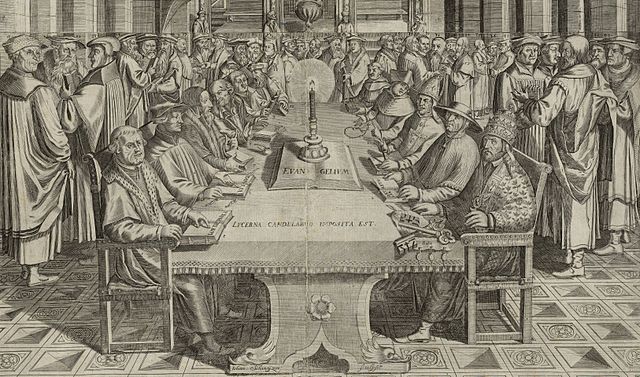John Calvin was a French theologian, pastor and reformer in Geneva during the Protestant Reformation. He was a principal figure in the development of the system of Christian theology later called Calvinism, including its doctrines of predestination and of God's absolute sovereignty in the salvation of the human soul from death and eternal damnation. Calvinist doctrines were influenced by and elaborated upon the Augustinian and other Christian traditions. Various Congregational, Reformed and Presbyterian churches, which look to Calvin as the chief expositor of their beliefs, have spread throughout the world.
Calvin was originally interested in the priesthood, but he changed course to study law in Orléans and Bourges. Painting titled Portrait of Young John Calvin from the collection of the Library of Geneva.
William Farel was the reformer who persuaded Calvin to stay in Geneva. 16th-century painting. In the Bibliothèque Publique et Universitaire, Geneva.
Saint-Nicolas Church, Strasbourg, where Calvin preached in 1538. The building was architecturally modified in the 19th century.
Martin Bucer invited Calvin to Strasbourg after he was expelled from Geneva. Illustration by Jean-Jacques Boissard.
Protestant Reformers were theologians whose careers, works and actions brought about the Protestant Reformation of the 16th century.
Fictitious dispute between the leading Protestant Reformers (sitting at the left side of the table: Luther, Zwingli, Calvin, Melanchthon, Bugenhagen and Oecolampadius) and the representatives of the Catholic Church





